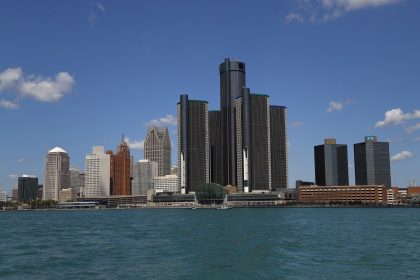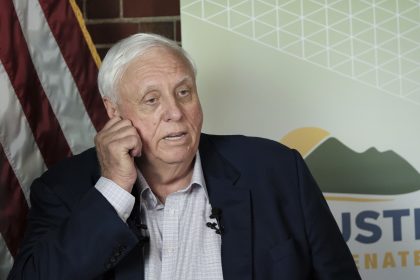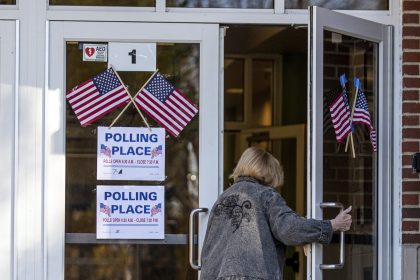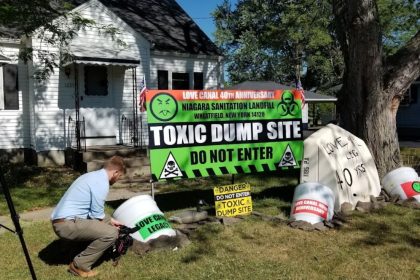Texas Grid Reliability Still in Doubt One Year After Outages

SAN ANTONIO — On the anniversary of Winter Storm Uri and its disastrous consequences for those who lived through it, a former advisor for the Public Utility Commission of Texas is warning that inaction could lead to more mass outages.
Former senior regulatory advisor for PUCT and the Federal Energy Regulatory Commission Alison Silverstein said substantive work still needs to be done to ensure the reliability of the state grid, even after legislative efforts were undertaken to address its causes. Silverstein told The Well News that little action has been taken on many of the recommendations made by her and five former PUCT commissioners in a report on preventing future energy failures in Texas.
The report, entitled “Never Again: How to Prevent Another Major Texas Electricity Failure,” was released in June 2021 and identified a litany of major problems with the state’s energy grid. The issues outlined in the report ranged from the failure of electrical plants to produce energy when needed to inadequate or inappropriate governance of the grid.
Silverstein said the Texas Legislature omitted winterization requirements for natural gas delivery infrastructure and allowed for the state agency with regulatory jurisdiction over the oil and natural gas industry to make inconsequential alterations for winterization requirements. Despite the misleading name, the Texas Railroad Commission is the state agency tasked with regulating and enforcing standards over the state oil and gas industry.
Although PUCT adopted requirements from the Texas Legislature requiring power generators and electric transmission companies to winterize their facilities, the bill’s text didn’t specify what “winterization” truly entails. Further, Silverstein pointed out a discrepancy between supposed gas system regulatory standards and what actual reporting documents filed by the individual members of the gas industry indicate.
“It turns out that there are no standards describing what winterization requirements should be for natural gas producers or pipelines,” Silverstein told The Well News. “And although [Texas Railroad Commission Chairman Wayne Christian] claims that 98% of the industry had reported winterizing to unspecified standards, only 47% of the industry had filed winterization reports.”
Silverstein cited public information requests put in with the TRC that obtained documentation covering what industry stakeholders had done since new winterization requirements were passed last year. But the new standards were vague and most of the reports filed with the commission didn’t note any substantial changes to the facilities, she said.
The single largest cause of mass outages during the winter freeze was natural gas systems freezing up at the production and delivery levels, but Silverstein said the new regulatory standards only address winterization at the production levels. Moreover, when demand skyrockets as it did last February, grid operators have difficulty prioritizing who gets the limited supply first.
“The distribution system is not designed to execute giant outages in an equitable fashion, and we designed the system to conceptually protect critical facilities without paying attention to the fact that if it’s so damn critical, maybe it should protect itself,” Silverstein told The Well News. “And we now have so many critical facilities designated — like hospitals and kidney dialysis centers. With more critical facilities … spread out on a distribution system, we run out of circuits that don’t have critical facilities that we can turn off.”
Further, PUCT and the Electric Reliability Council of Texas are doing “little or no substantive, credible, transparent analysis” on the grid’s operational problems, she said. While PUCT has considered proposals offered mostly by generators aimed at solving broad issues with the grid, they are still largely neglecting to consider whether these proposals would effectively solve the underlying problems.
For instance, despite half of ERCOT’s “black-start” generation units failing during the outages, there has been minimal effort to study or improve the emergency generation system. During an emergency ERCOT board meeting days after power had been restored, officials said the grid was less than five minutes away from an indefinite blackout that would have lasted for weeks.
“ERCOT said transmission and distribution utilities started cutting load on the morning of [Feb. 15, 2021],” Silverstein said. “Then they cut power to even more of the natural gas production and delivery system, so the natural gas system cratered. Problem one was severe cold that neither Texas homes nor Texas power plants were built to withstand. Problem number two was that it caused 48.6% of Texas’ generation to freeze up and became unavailable for a variety of reasons.”
Silverstein explained that when generator failures lead to blackouts, other generators are needed to transmit power to those facilities to get them operational again. This is where black-start generation units are meant to play a pivotal role in bolstering grid reliability by supplying downed facilities with enough power to get back online.
However, the emergency power generation units are themselves dependent upon supplies of natural gas, and no federal or state energy regulatory commission has indicated publicly that they are committing any study to the black-start failures. Generators’ proposals for rectifying the grid issues include allocating more dispatchable generation capacity, but the agencies haven’t accounted for whether the proposals would further incentivize generators to push electricity prices even higher during peak demand periods.
PUCT has not followed any standard administrative process to date for resolving the market issues, Silverstein told The Well News. While administrative law contains numerous process requirements — such as conducting rulemakings, allowing officials to comment publicly, probing positions, offering studies and counter-proposals — PUCT has ignored all those processes and timelines since the end of the legislative session in June 2021.
“We all get that there was lots to do and not much time before [this year’s] winter … but the PUCT has cut a lot of corners and some of its recent rulings could be legally vulnerable if someone wanted to take them to court to slow things down,” Silverstein said. “Additionally, the PUCT has not conducted any public hearings to share progress to date and to listen to citizens’ concerns. Particularly on issues of this dollar and emotional importance, enabling meaningful public input is both good policy and good politics.”
Reece can be reached at [email protected]

























